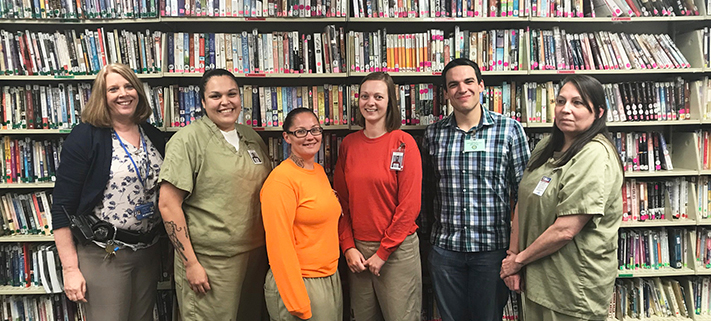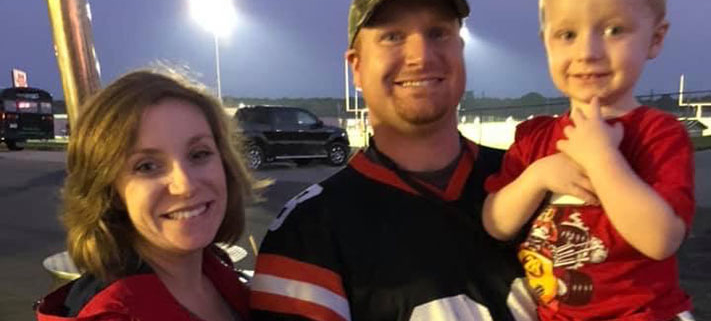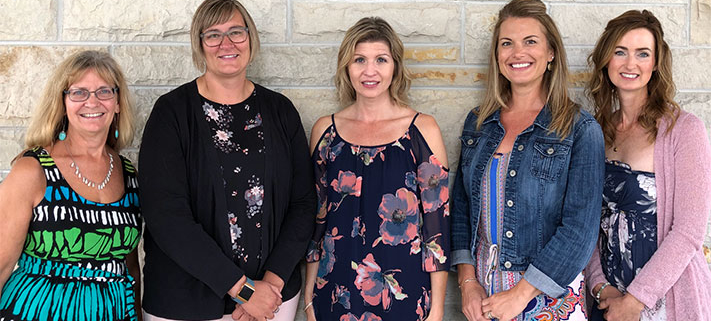Yes, you should go to jail
It’s true: a pastor’s primary responsibility is to his flock, the ones he has been called to shepherd and lead to the green pastures and quiet waters of the Word.
But Jesus said he would call other sheep, such as the droves who are locked up. They need to be led to those same green pastures and quiet waters. They cannot come to us; they need us to go to them.
Should a shepherd, busy tending those safely in the sheep pen, also be seeking strays in the penitentiary? Consider these ten reasons to “go directly to jail.”
1) Jesus died for them, too. “While we were still sinners, Christ died for us” (Romans 5:8).
2) It could be me. Maybe you recall a sin for which you could (should?) have been arrested. You may know fellow pew sitters who once sat in a cell. Maybe you recognize these “jailbirds:” Joseph, Jeremiah, John, Jesus. Or these murderers: Moses, David, Paul. And it may happen that a son or daughter of the congregation gets in trouble, hoping to keep it secret. A pastor with prior access to jail is in the right place with the right credentials to counsel disgraced disciples.
3) Why not WELS? Other groups conduct ministry behind bars, but many dilute the pure gospel with conditions. If it sounds strange to announce “You are forgiven” to a convicted, repentant lawbreaker, recall the loving father’s message to his convicted, repentant son (Luke 15:21-24).
4) They are part of the “all nations” that Jesus sent his disciples to evangelize (Matthew 28:19-20). We might refer to this ministry as our mission to “Incarceration Nation.”
5) Privilege. Not all kids grow up in happy situations. Lack of loving parents, church family, and godly friends does not excuse criminal behavior, but broken homes and hopes often contribute to self-destructive choices. If you enjoy a good life, thanks in part to circumstances of birth, realize that others were not so blessed. It is your privilege to introduce Satan’s captives to the Chainbreaker.
6) Recognition. The world may not care that you care about criminals, but your Savior does. On the Last Day, the Good Shepherd will extend the invitation: “Come, you who are blessed by my Father…for I was in prison and you came to visit me” (Matthew 25:34,36).
7) Reformation. The same Word that brought radical change to a corrupt church can bring radical change to corrupt convicts. “If anyone is in Christ, he is a new creation…” (2 Corinthians 5:17). No, not everyone who gets “jailhouse religion” remains on the narrow path that leads to life. Nor does every youth confirmed in your church. We teach them anyway.
8) Appreciation. The sheep in the safety of the pen don’t always thank their faithful shepherd. After all, that’s why they pay him. But sheep that are sinking in quicksand or dangling from a precipice may be profusely grateful for their rescue.
9) Go outside the walls. “Let us go to him outside the camp, bearing the disgrace he bore” (Hebrews 13:13). Inside the church there is safety and peace. Outside there are broken lives, pain, disgrace. Jesus went outside, seeking society’s failures. The mission field is not inside the walls of a church, but there is a ripe field inside the walls of a penal institution.
10) Reputation. Perhaps you fear that outreach to those in prison will result in your church being a target of derision. Remember who targeted Jesus for derision for consorting with “sinners?” The Pharisees! This ministry will earn you a reputation: as a church that cares about “the least of these,” for you understand that grace for you means grace for them; as a ministry that sets an example of leaving your comfort zone; as a body of believers that is not afraid to get its hands dirty; as “real deal” Christians who take seriously the words: “Remember those in prison as if you were fellow prisoners…” (Hebrews 13:3).
Eager to take the next step? Contact WELS Prison Ministry at 507-354-3130 or [email protected]. Ask about the Jail Ministry Training Team. Find more resources at wels.net/pm.
If you know an inmate who would appreciate mailings from WELS Prison Ministry, submit their name and address at wels.net/refer.
David Rosenbaum teaches at the Brevard County Jail, an outreach of Redeemer, Merritt Island, Fla.
SPECIAL MINISTRIES
Learn about the ministry work of WELS Special Ministries.
SUPPORT SPECIAL MINISTRIES
Support the ministry work of WELS Special Ministries.









